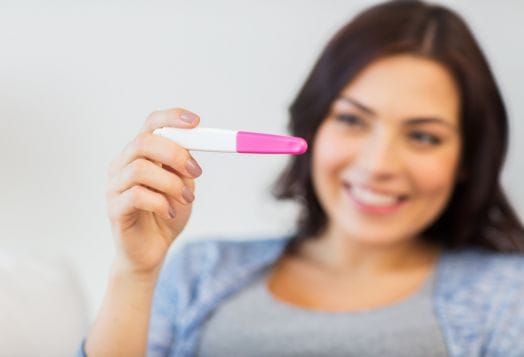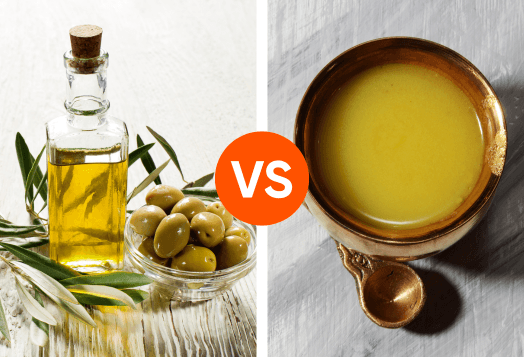
You’re sipping chai at your cousin’s wedding when someone starts raving about how eating pineapple cores helped their neighbour conceive twins. Before you know it, you're bombarded with advice about magic fertility foods—from yams to pomegranate seeds.
When you're trying to conceive, everyone seems to have an opinion. Let’s separate science from hearsay and uncover the truth about fertility-boosting foods—because understanding what to eat when trying to conceive can feel overwhelming amid so many myths.

Some dietary habits might actually play a role in fertility. Scientific research shows that a diet rich in vegetables, whole grains, and unsaturated fats can improve reproductive health. But can food really influence your chances of getting pregnant? Let’s cut through the noise and get to the facts behind some popular claims.
Myth 1: Eating pineapple core can help implantation
The bromelain in the pineapple core is believed to improve implantation chances after ovulation. If you’re wondering, 'Does pineapple help with implantation?'—the science just isn’t there.
Truth behind it
Bromelain may have mild anti-inflammatory properties, but there’s no evidence that it directly aids implantation. Pineapple is healthy, but its core won’t magically boost fertility.
Bromelain’s effects are too mild to impact the complex process of implantation significantly. Eating pineapple in moderation as part of a balanced diet is great for overall health, but it won’t guarantee pregnancy.
Myth 2: Yams can increase your chances of having twins
Eating yams, particularly wild ones, is linked to a higher likelihood of conceiving twins.
Truth behind it
While yams are nutritious, there’s no solid evidence linking them directly to twin pregnancies. This myth likely originated from a region in Nigeria, where women traditionally eat yams and have a higher rate of twins.
However, research hasn’t confirmed that yams are the reason. Genetic and environmental factors likely play a larger role in determining twin pregnancies.
Myth 3: Consuming full-fat dairy increases fertility
Eating full-fat dairy products like milk, yoghurt, and cheese boosts fertility by regulating ovulation. For those curious about foods that boost fertility, full-fat dairy might have some benefits, but moderation is key.
Truth behind it
Full-fat dairy might help some women, but it’s not a universal solution for fertility issues. A study from the Harvard School of Public Health suggested that full-fat dairy might be associated with a reduced risk of ovulatory infertility.
However, overindulging in full-fat dairy may lead to excess calorie consumption, which can negatively affect fertility for those trying to manage their weight. Moderation is essential to reap the benefits without adding unnecessary risks.
Myth 4: Losing weight is the only way to boost fertility
Shedding pounds is the sole determinant of improved fertility outcomes.
Truth behind it
While weight management plays a role, diet quality and lifestyle changes are just as crucial.
Excess weight can disrupt hormone balance and impair ovulation, particularly in women with PCOS.
However, a well-rounded diet focusing on whole grains, healthy fats, and nutrient-rich foods can boost reproductive health regardless of weight. For those with PCOS or other ovulation-related issues, this combination of dietary changes and gradual weight loss often yields the best results.
Myth 5: Carbs should be completely avoided for better fertility
Cutting out all carbohydrates enhances fertility and increases the chances of conception.
Truth behind it
If you're looking for the best diet for conception, focus on complex carbs like quinoa and oats instead of cutting them out entirely. Highly processed and refined carbs, like white bread and sugary snacks, can cause spikes in blood sugar and insulin levels, negatively affecting ovulation.
However, whole-grain carbs like quinoa, farro, and oats provide essential nutrients and support stable blood sugar levels, which are beneficial for fertility. Choosing complex carbs over refined ones is the smarter approach for those trying to conceive.
Myth 6: Pomegranate juice can improve egg quality
Pomegranate juice enhances blood flow to the uterus and ovaries, improving egg quality.
Truth behind it
Pomegranate juice has antioxidants, but its direct impact on egg quality is unproven. Antioxidants like those in pomegranates may support overall reproductive health by reducing oxidative stress, which can harm eggs.
However, no conclusive evidence shows that pomegranate juice specifically improves egg quality. It’s a healthy addition to your diet, but it’s not a miracle cure for fertility issues.
Myth 7: Spicy foods reduce your chances of conceiving
Eating spicy food causes internal heat, which might harm reproductive health and reduce fertility.
Truth behind it
Spicy foods have no direct impact on fertility, but balance in diet matters. There’s no scientific basis for claims that spicy foods harm fertility.
However, excessively spicy diets might cause digestive discomfort or stress, indirectly affecting overall health. A diverse and nutritious diet supports fertility, and there’s no need to avoid your favourite spicy dishes unless advised otherwise by a professional.
Myth 8: Eating honey with warm water can cure infertility
A daily dose of honey mixed with warm water can naturally cure infertility.
Truth behind it
Honey is healthy but lacks scientific evidence to support its role in curing infertility. Honey is rich in antioxidants, which can help combat oxidative stress in the body, a factor linked to some fertility issues.
However, there is no concrete research proving that honey alone can improve reproductive health or address infertility. Including honey as part of a balanced diet can promote general health, but it’s not a miracle cure for conception challenges.
Myth 9: Drinking coffee reduces fertility
Caffeine consumption is believed to lower fertility and make conception more difficult.
Truth behind it
Moderate coffee intake is generally safe and unlikely to affect fertility for most people. Excessive caffeine consumption (more than 300 mg per day, or about three cups of coffee) has been linked to potential delays in conception.
However, moderate amounts are considered safe for most individuals trying to conceive. For those undergoing fertility treatments or with specific health concerns, reducing caffeine intake might be recommended as a precaution.
Myth 10: Soy products harm fertility
Eating soy-based foods like tofu or soy milk can negatively impact fertility due to plant-based estrogens.
Truth behind it
Soy in moderation is safe and may even offer benefits for some individuals. Soy contains phytoestrogens, which mimic oestrogen in the body, but studies have shown that moderate consumption of soy does not adversely affect fertility.
In fact, soy may support reproductive health in some cases by offering a plant-based protein alternative and supporting heart health. Excessive consumption might cause hormonal imbalances, so balance is key when including soy in your diet.
Are you curious whether soy products harm fertility? Truth is, in moderation, soy can be part of a fertility-friendly diet without negatively impacting reproductive health.
Take Charge of Your Fertility Journey
The common fertility myths we’ve covered show that no single food guarantees pregnancy. A balanced diet rich in healthy fats, whole grains, and lean proteins remains the best diet for conception.
If you’re on your journey to conceive, connecting with a professional can provide personalised guidance tailored to your specific needs.
Disclaimer: This information provided is intended for general informational purposes only. It is not a substitute for professional advice or guidance. For personalised recommendations or specific concerns, please consult a certified professional.




